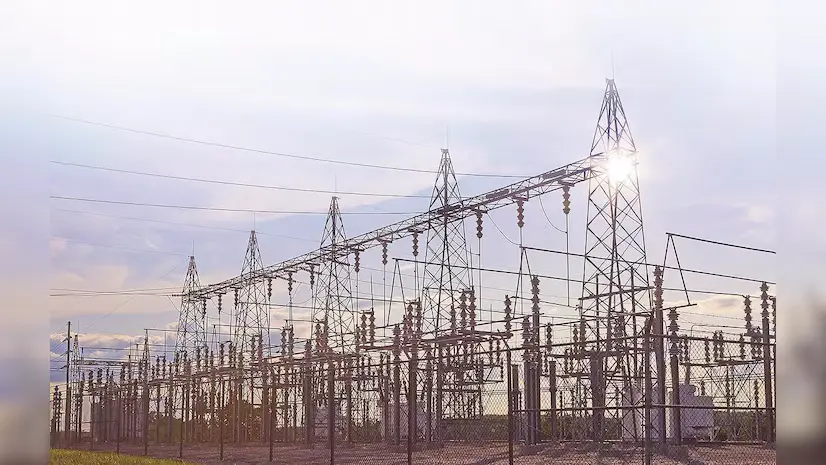Russia is planning to revise its nuclear doctrine in response to what it perceives as Western escalation in the Ukraine conflict, according to statements made by Deputy Foreign Minister Sergei Ryabkov, as reported by state media on Sunday.
The current nuclear doctrine, established by President Vladimir Putin in 2020, permits the use of nuclear weapons in the event of a nuclear attack from an enemy or a conventional attack that threatens the state’s existence.
Some hardliners among Russia’s military analysts have recommended that Putin lower the threshold for nuclear use to “sober up” Western adversaries. Putin mentioned in June that the nuclear doctrine was a “living instrument” that could be altered based on global developments. Ryabkov’s comments on Sunday were the most explicit indication so far that changes would be forthcoming.
Ryabkov indicated that the process is “at an advanced stage” and there is a “clear intent to make corrections,” as reported by state news agency TASS. He noted that the decision is “connected with the escalation course of our Western adversaries” in relation to the Ukraine conflict.
Moscow accuses the West of using Ukraine as a proxy to wage war against it, aiming to inflict a “strategic defeat” on Russia and to destabilize it. The United States and its allies refute this claim, asserting that they are supporting Ukraine in defending itself against what they describe as a colonial-style aggression by Russia.
What is Russia’s current nuclear doctrine?
Formally known as the “Basic Principles of State Policy on Nuclear Deterrence,” the document was signed by Putin in 2020 and outlines conditions under which Russia might resort to its extensive atomic arsenal.
It describes nuclear weapons as a “means of deterrence” and emphasizes that their use is an “extreme and compelled measure.” The document asserts that Russia “takes all necessary efforts to reduce the nuclear threat and prevent the aggravation of interstate relations that could lead to military conflicts, including nuclear ones.” It also explains that “nuclear deterrence is designed to ensure that a potential adversary understands the inevitability of retaliation in the event of aggression against the Russian Federation and/or its allies.”
According to the doctrine, nuclear weapons could be used in response to the use of nuclear and other weapons of mass destruction against Russia and/or its allies, or in the event of aggression against Russia with conventional weapons that threatens the very existence of the state.
Specifically, nuclear weapons could be employed under these conditions:
— If reliable information indicates the launch of ballistic missiles targeting Russia or its allies.
— If nuclear or other weapons of mass destruction are used against Russia or its allies.
— If an attack with conventional weapons threatens Russia’s existence.
— If attacks on critical Russian government or military facilities could undermine the country’s ability to launch a retaliatory nuclear strike.
Read More: Zelenskyy Says Russian Missile Strike On Ukraine Military College Kills 41, Scores Wounded
Changes in line
There have been calls in Russia for a revision of the nuclear doctrine, with Putin indicating that modifications could be considered based on global events.
Hawks have consistently pushed for a stricter doctrine, arguing that the current version is too weak and ambiguous. They believe it has failed to deter the West from increasing aid to Ukraine and gives the impression that Moscow would never use nuclear weapons.
Foreign affairs expert Dmitri Trenin from the Institute of World Economy and International Relations suggested that the doctrine should be revised to state that Russia might use nuclear weapons first when “core national interests are at stake,” such as in Ukraine.
Trenin emphasized the need to prevent deeper NATO involvement, warning that failure to do so might result in a direct clash between Russian and NATO forces, which could lead to a global nuclear conflict.
At an international forum in St. Petersburg, foreign policy expert Sergei Karaganov, who advises the Kremlin, also called on Putin to amend the doctrine to lower the threshold for nuclear weapon use. He expressed hope that such a change would provide a formal right to respond with nuclear force to any strikes on Russian territory and help deter adversaries.
Putin responded cautiously, noting that he currently does not see threats that would justify the use of nuclear weapons but acknowledged that the policy could be revised.
He mentioned that the need to modify the doctrine was driven by concerns about the West contemplating the deployment of low-yield nuclear weapons. While Putin did not provide specifics, his comments might relate to U.S. discussions about deploying low-power submarine-launched nuclear missiles.
China reacts
On Monday, China reiterated its stance that nuclear weapons should not be used following a warning from Russia about changing its policy on such weapons.
During a press conference in Beijing, Chinese Foreign Ministry spokesperson Mao Ning emphasized that China has consistently asserted that nuclear weapons should not be used and that nuclear war cannot be fought. She was addressing remarks made by Russian Deputy Foreign Minister Sergei Ryabkov.
Ryabkov informed Russian state news agency Tass on Sunday that there is a “clear intent” to revise Russia’s nuclear doctrine, attributing this decision to increased escalation by Western “adversaries” in the Ukraine conflict.
Mao added that, given the current situation, all parties should stay calm and exercise restraint. She stressed the importance of promoting de-escalation and reducing strategic risks through dialogue and consultation.
Mao also pointed out that five nuclear-weapon states—China, France, Russia, the United Kingdom, and the United States—released a joint statement on preventing nuclear war on January 3, 2022, prior to Russian President Vladimir Putin’s “special military operation” in Ukraine.
Also Read: Russian President Putin Visits Mongolia Despite ICC Warrant























